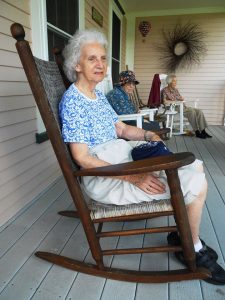With the Ancient is Wisdom
“Wisdom is with aged men, and with length of days, understanding.” Job 12:12
Wisdom (generally defined) is the soundness of an action or decision with regard to the application of experience, knowledge, and good judgment. According to the Holy Bible, such wisdom and understanding comes solely from God. Why? Because discernment and good judgment can be measured only by absolute truth, the Word of God. Job unapologetically defends this gospel truth about his Creator (Job 12). In God’s unsearchable wisdom and omnipotent power, He allows men to obtain wisdom and understanding. It is found “with the ancient” who have lost their physical strength but are blessed “with length of days” and life experience. What a status to obtain, one to be admired!
The grey hair is “a crown of glory” to those who walk in righteousness (Proverbs 16:31). God has compassion and purpose for the elderly, promising to be with them to the very end. He has called us to care for them with the respect and honor they have earned. “You shall rise before the gray headed and honor the presence of an old man, and fear your God: I am the Lord” (Leviticus 19:32). We consider it a privilege to obediently rise to the occasion!



